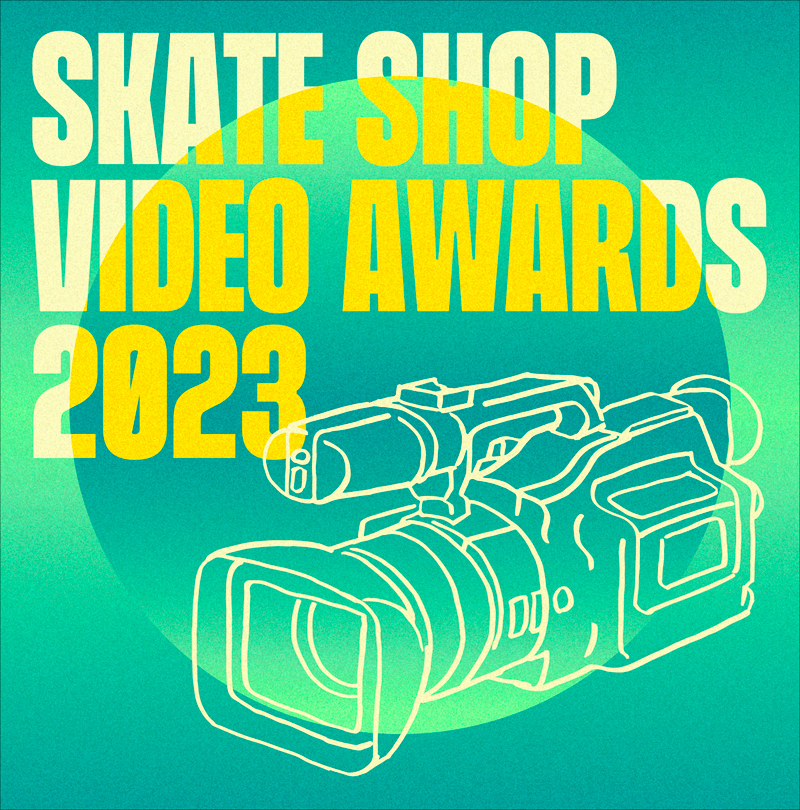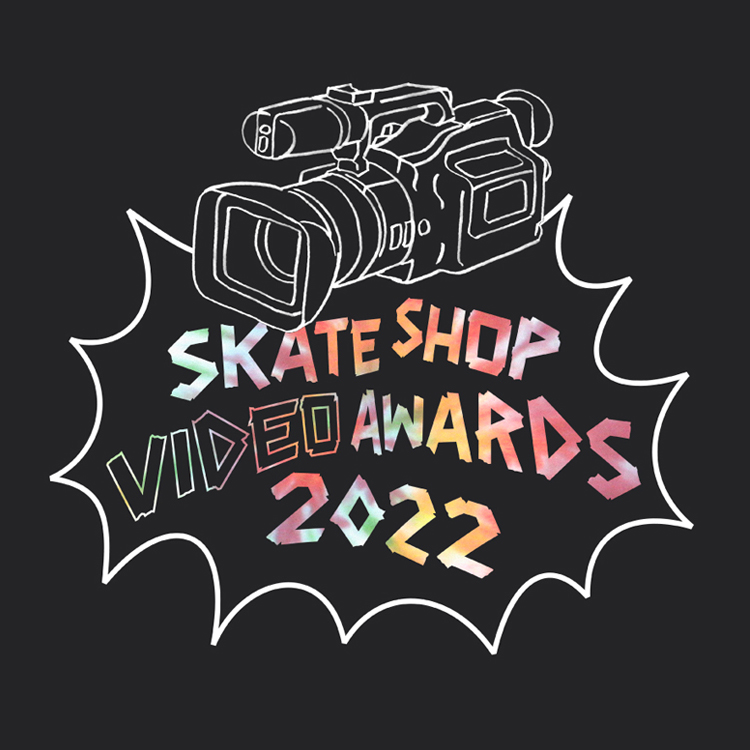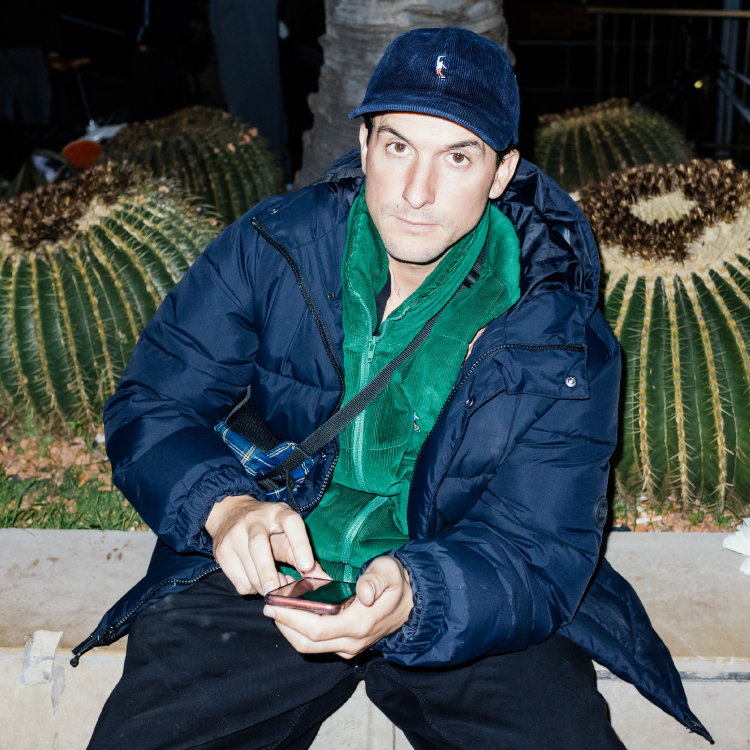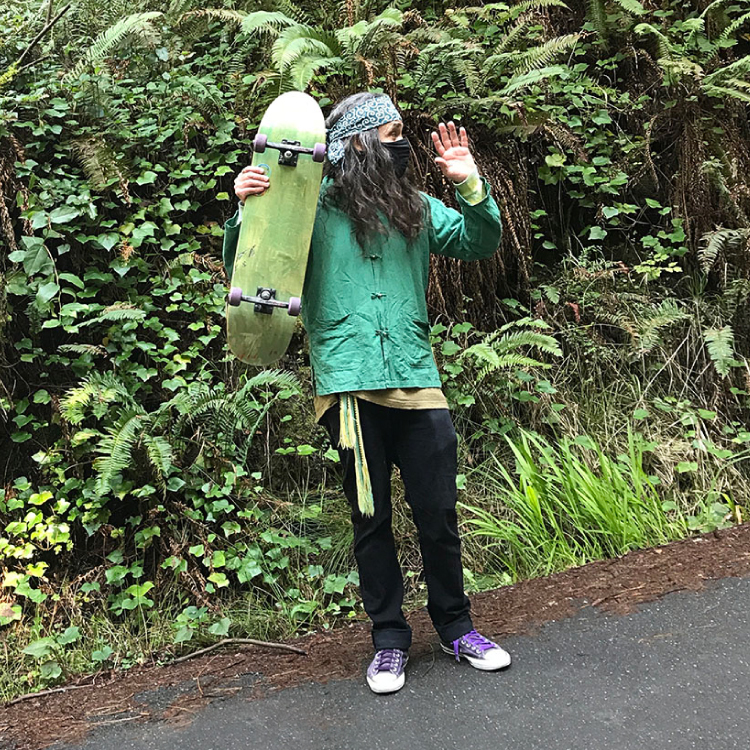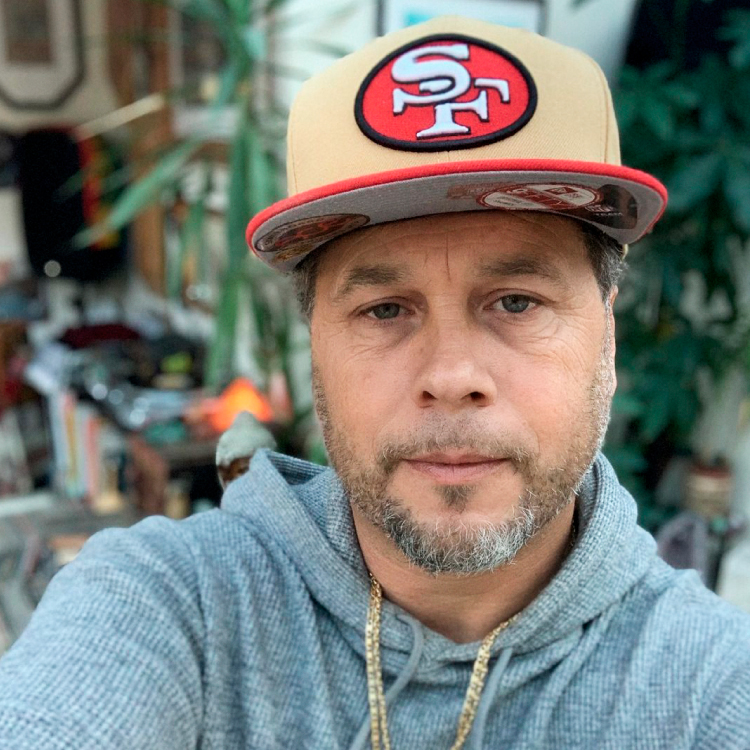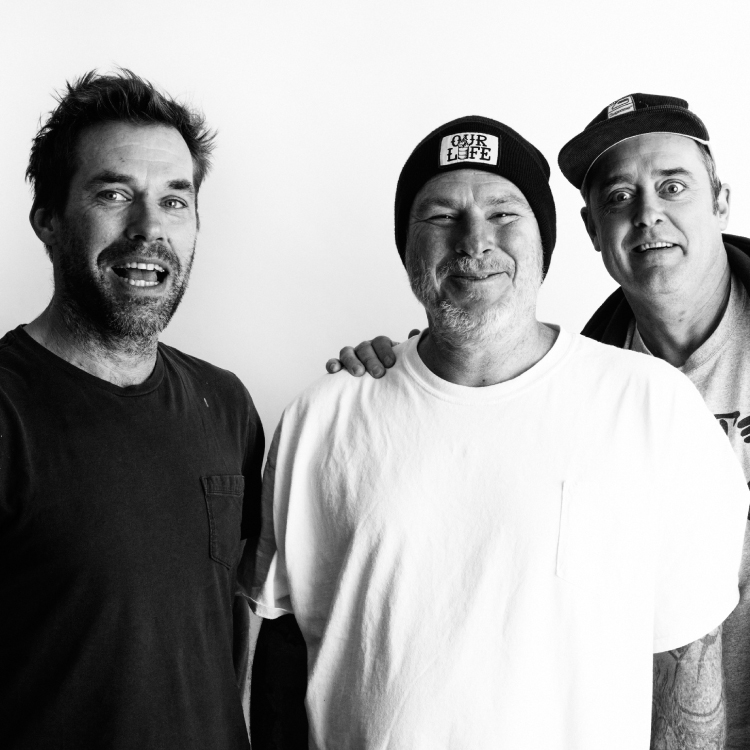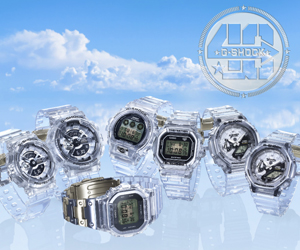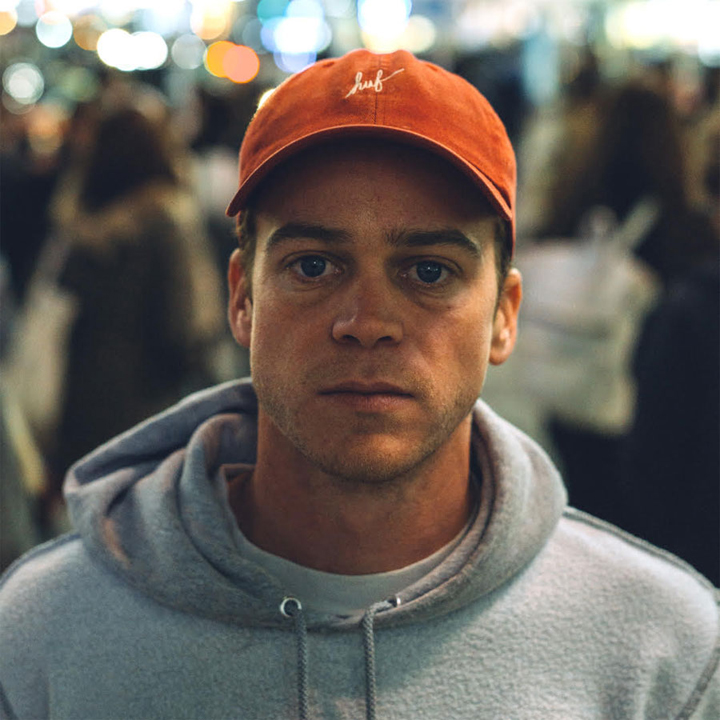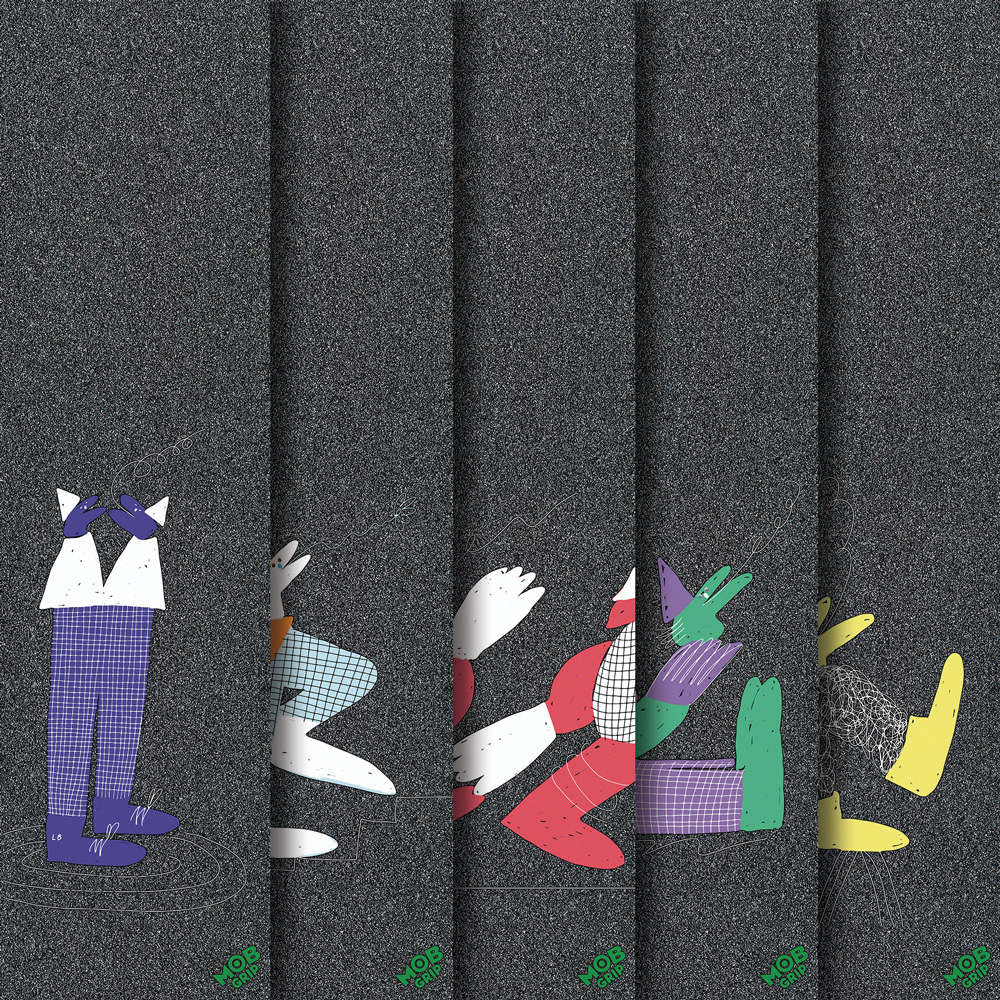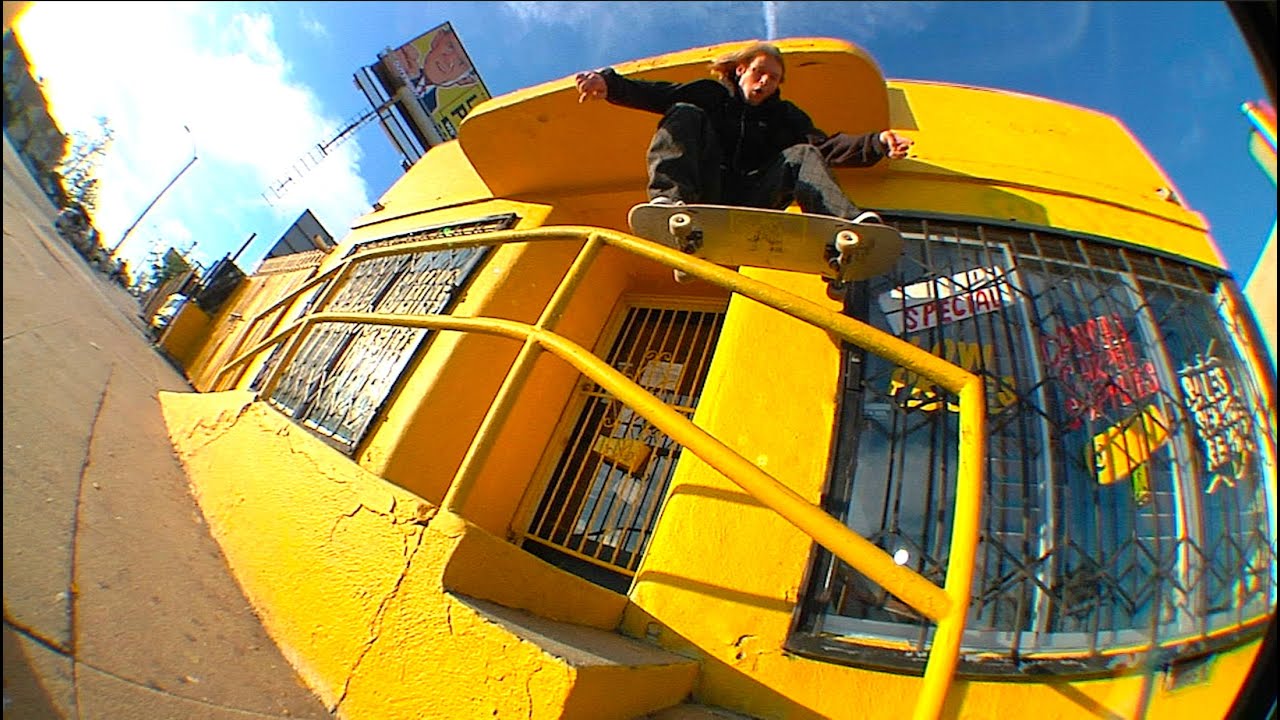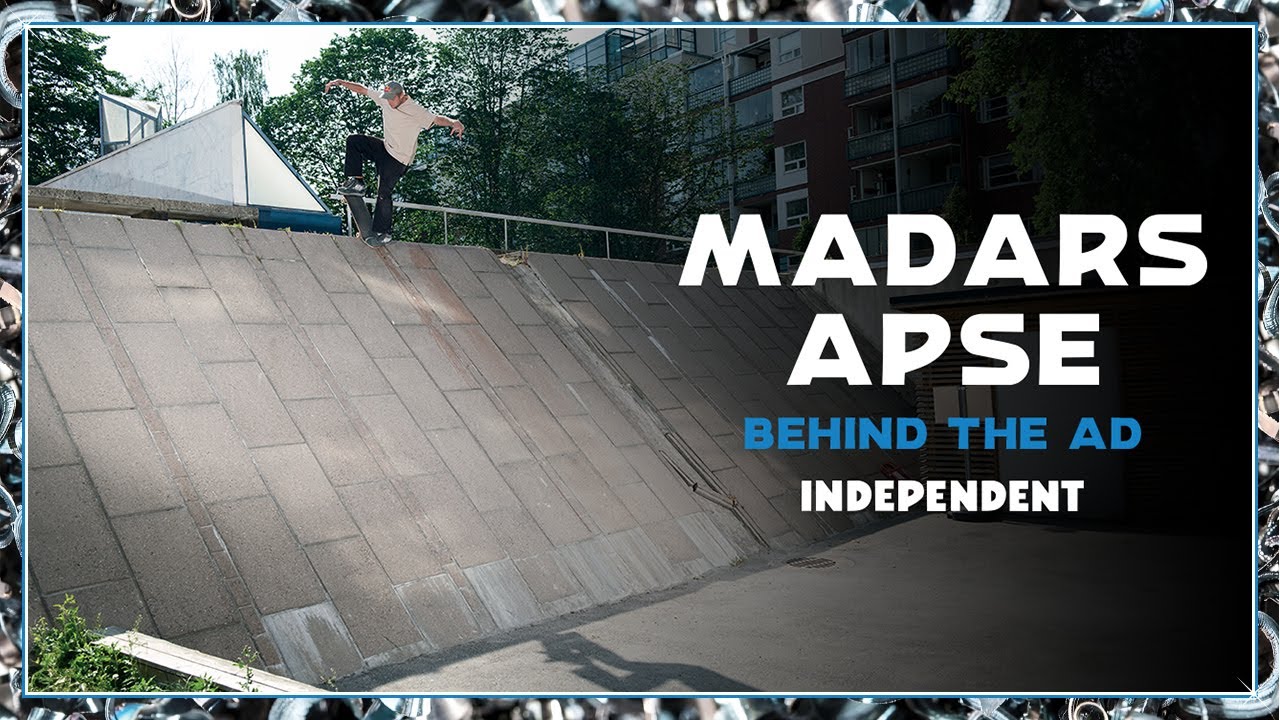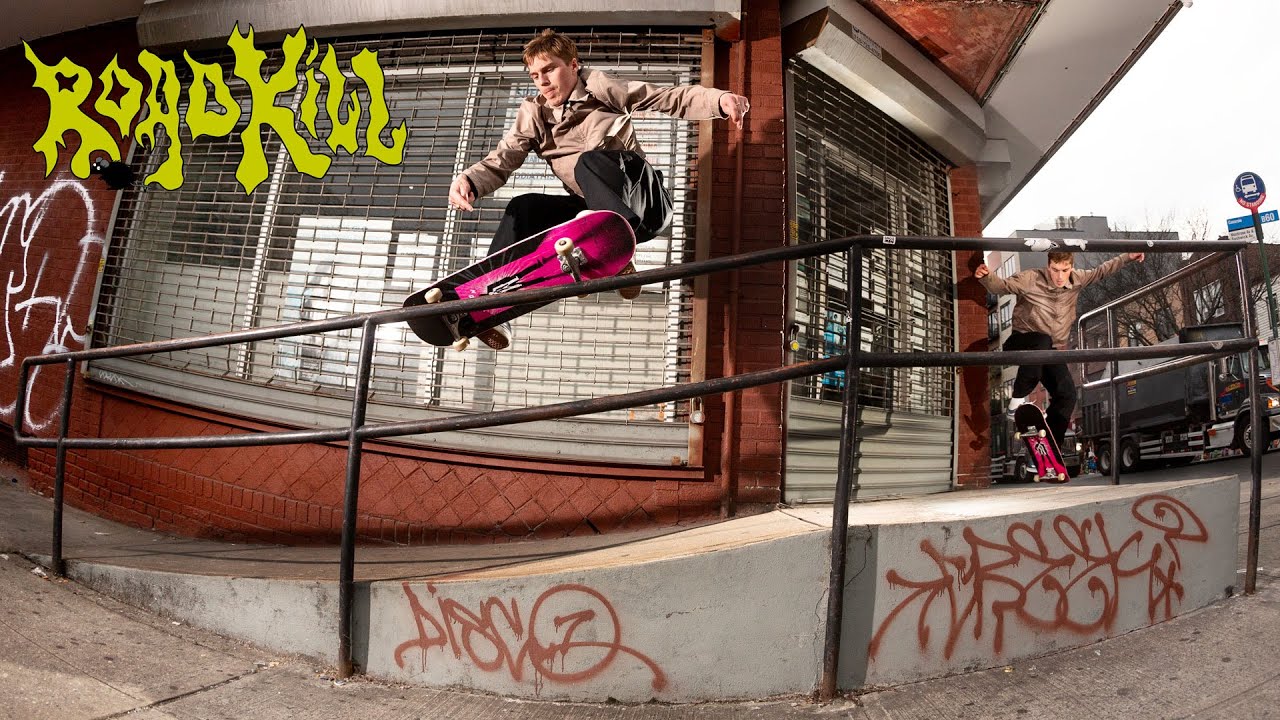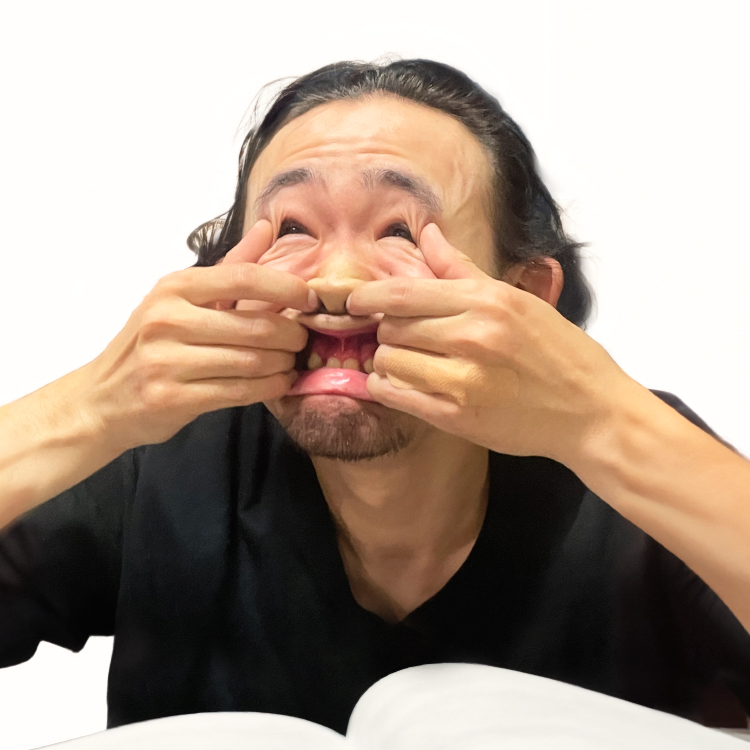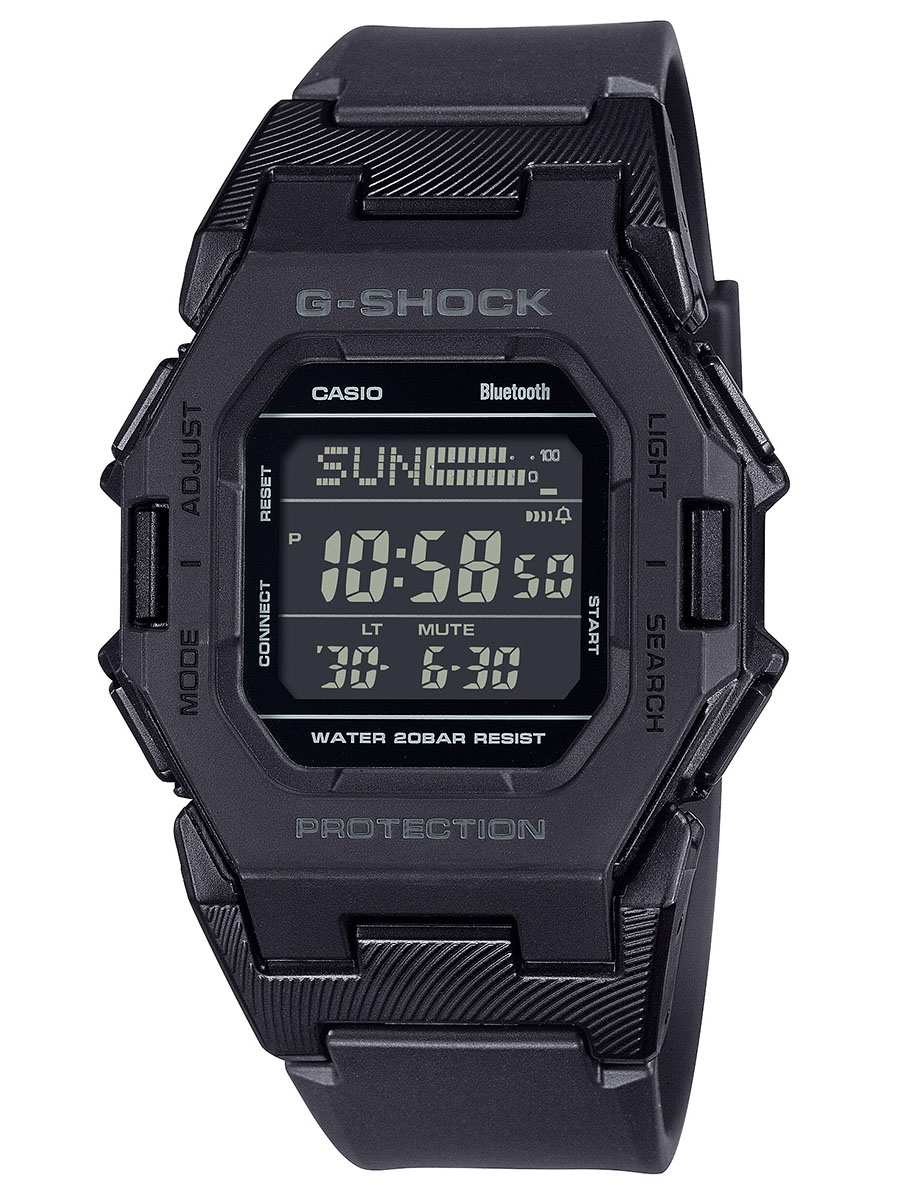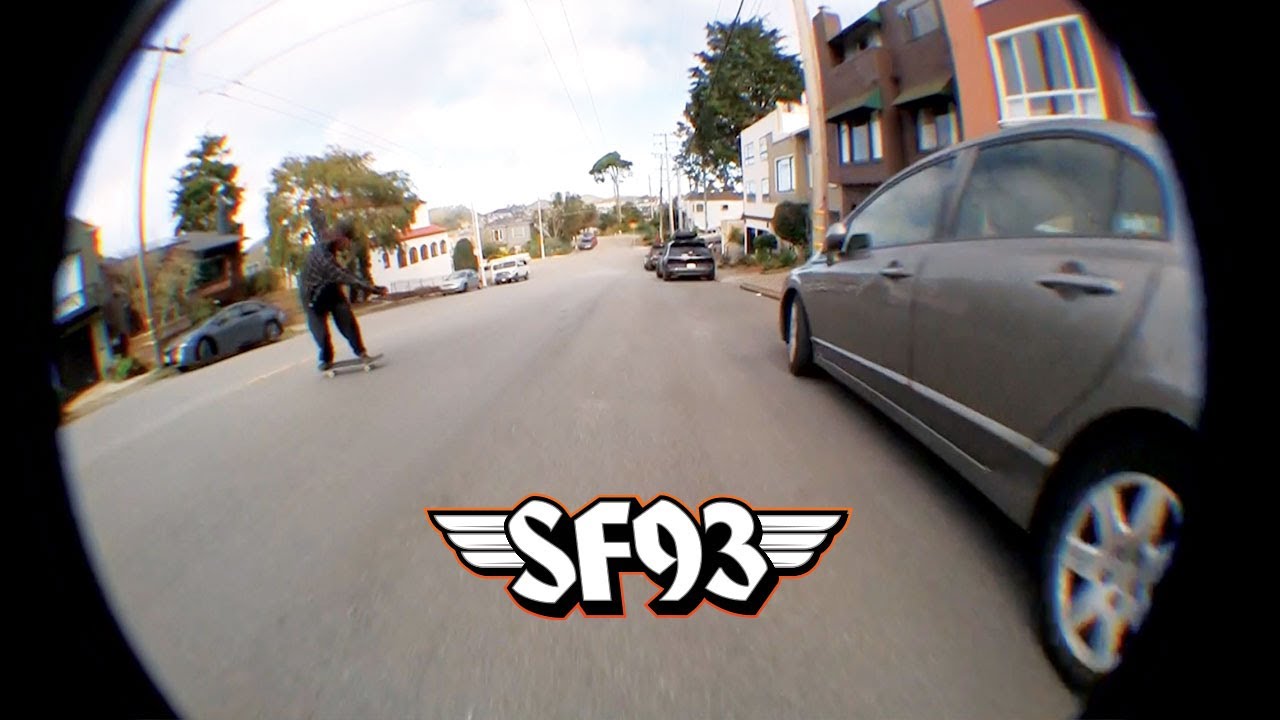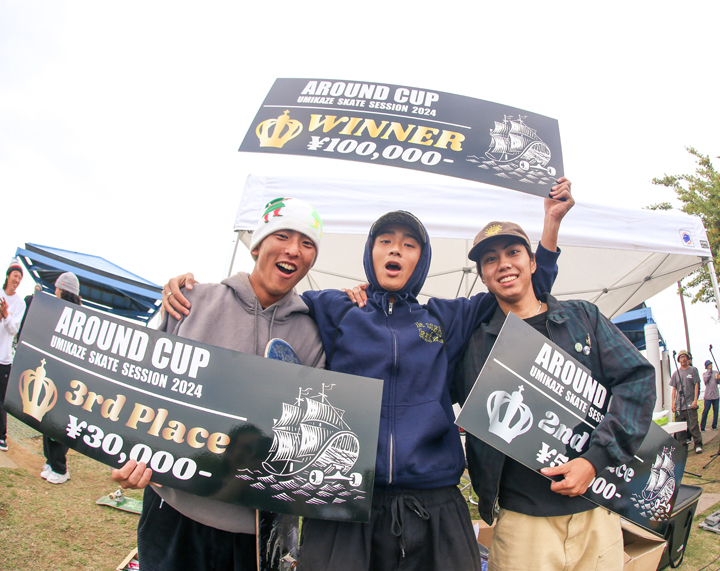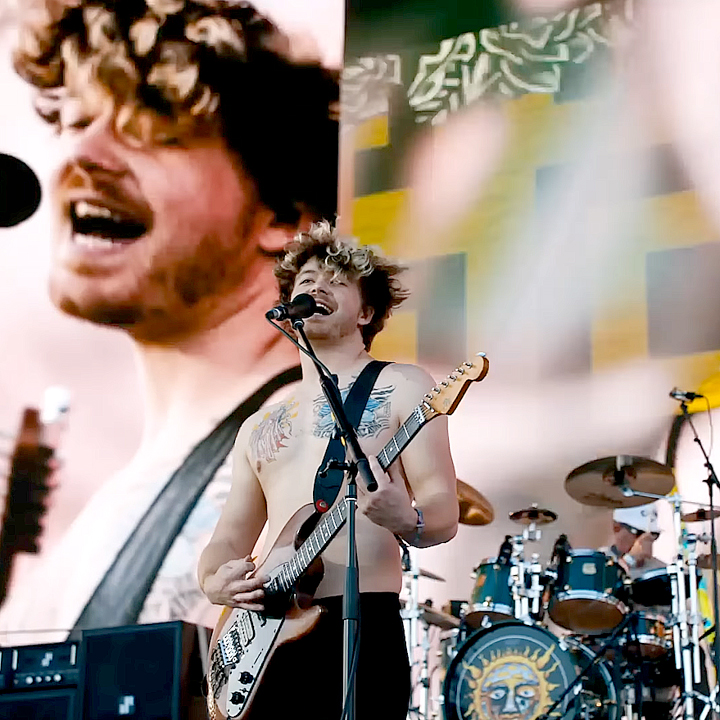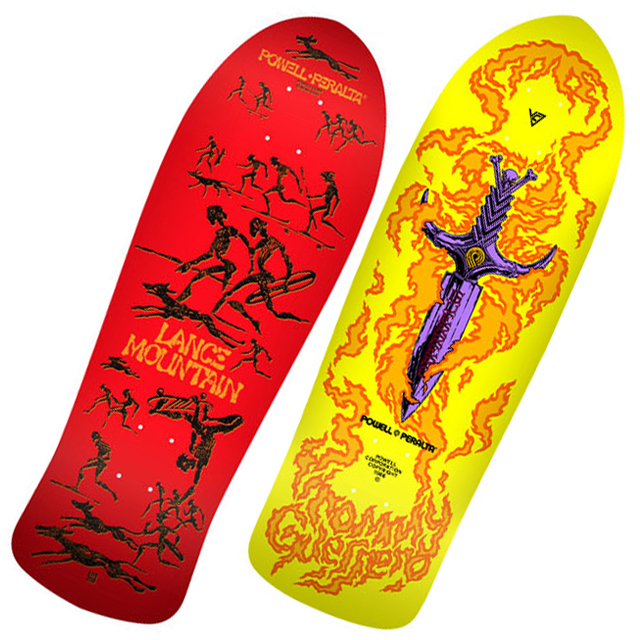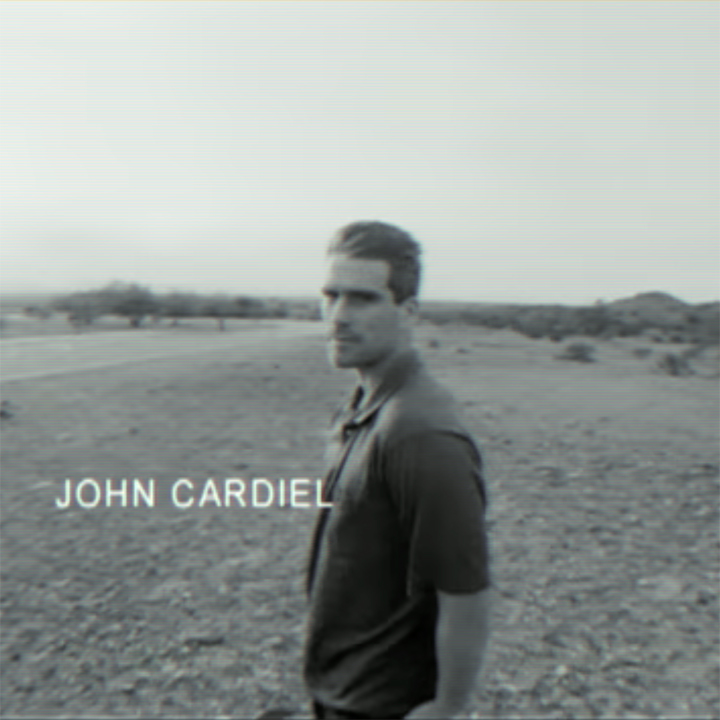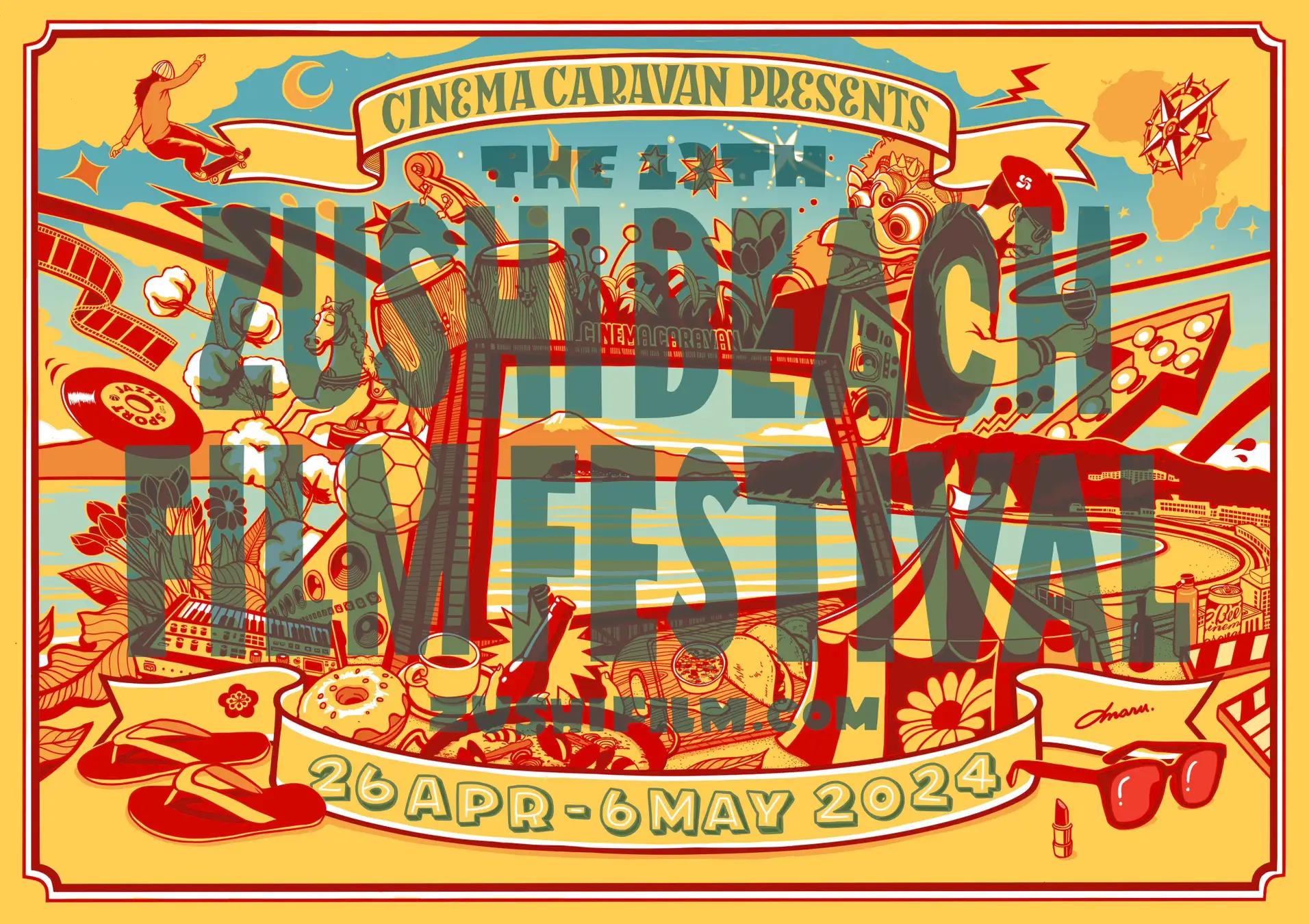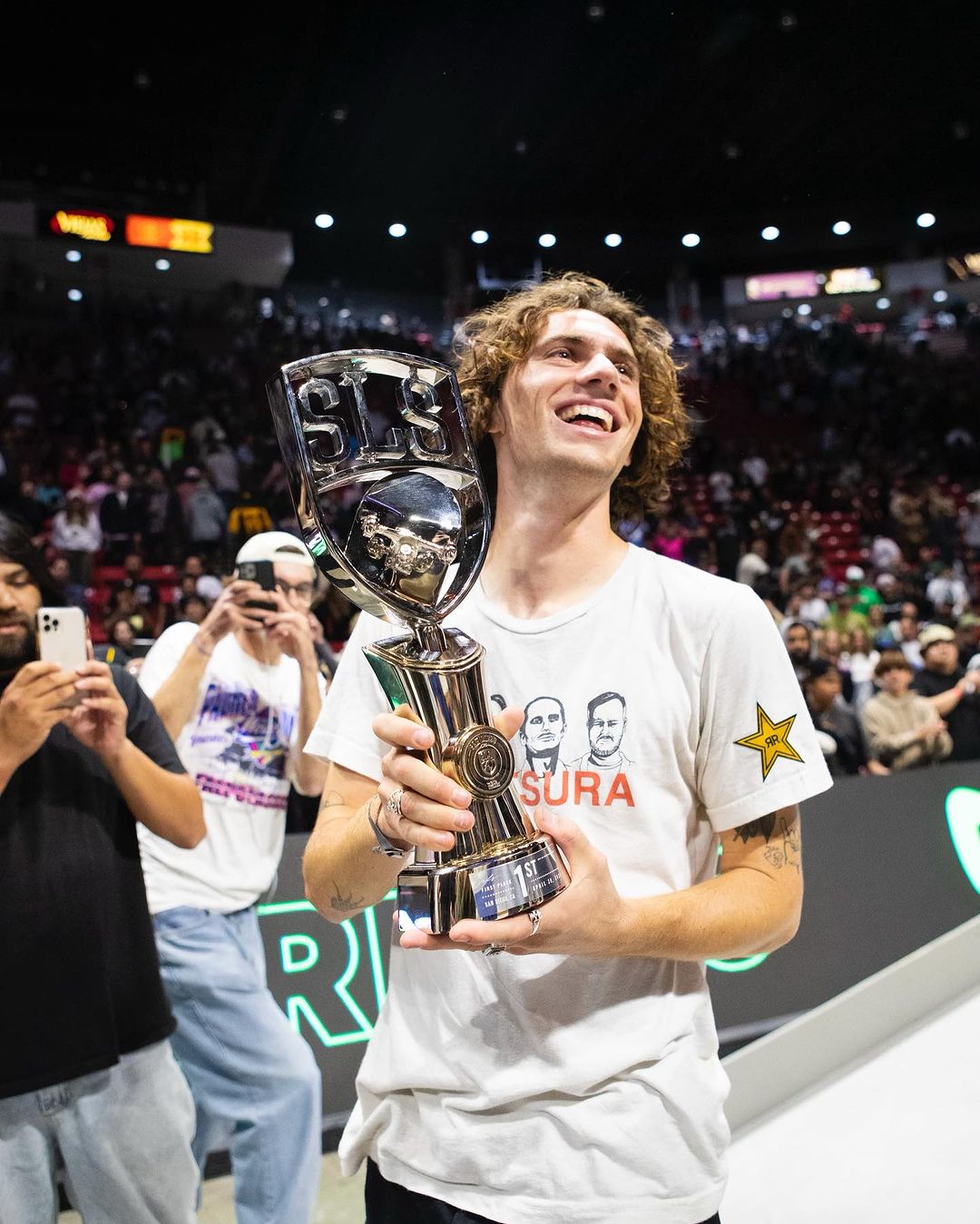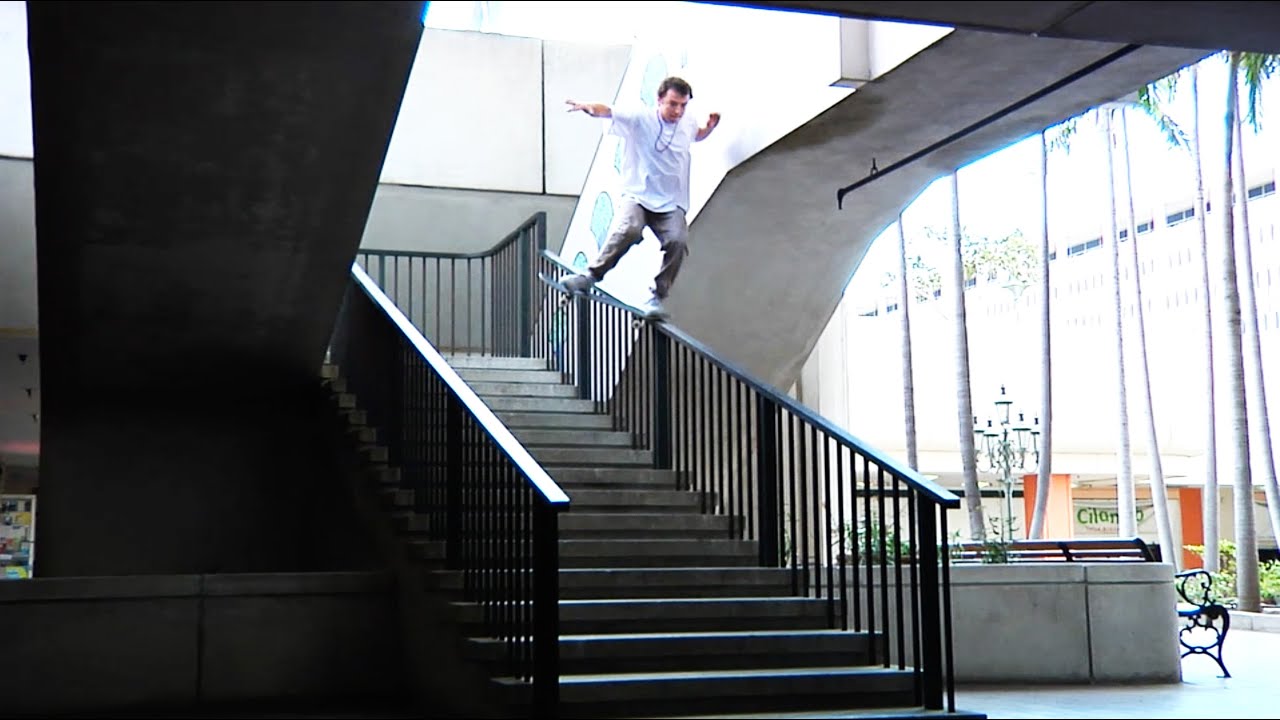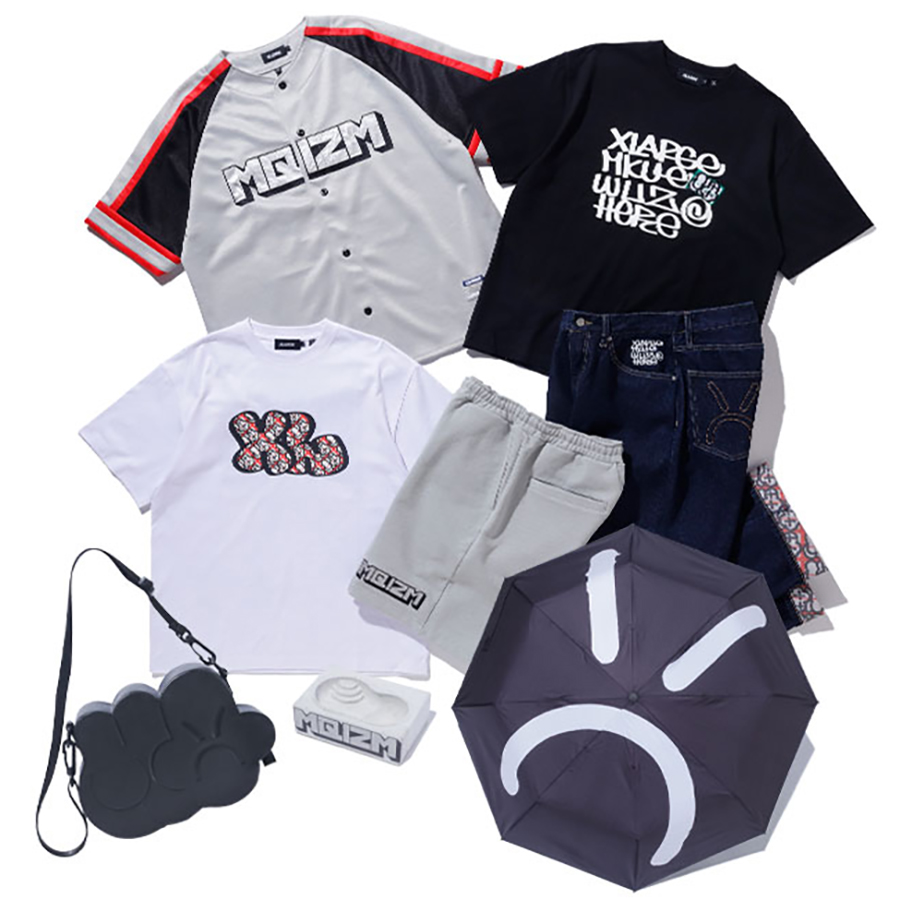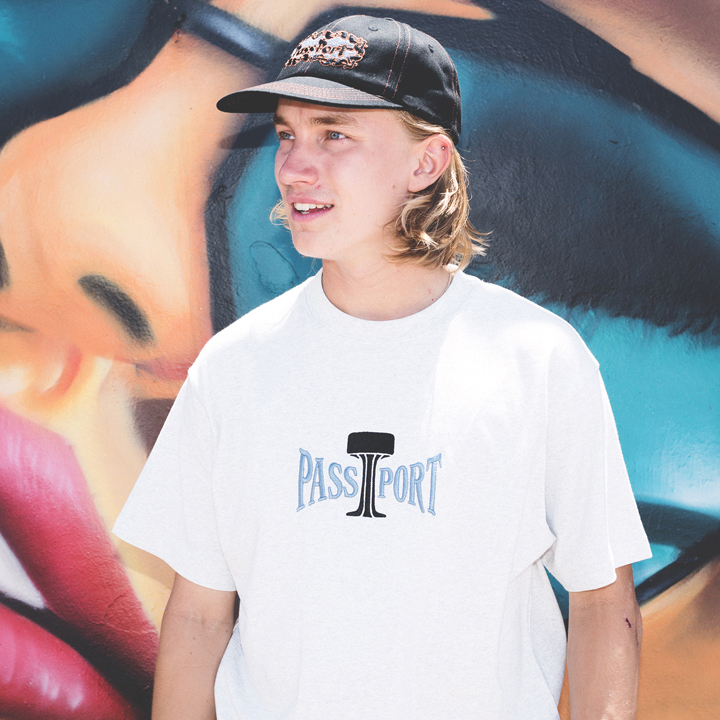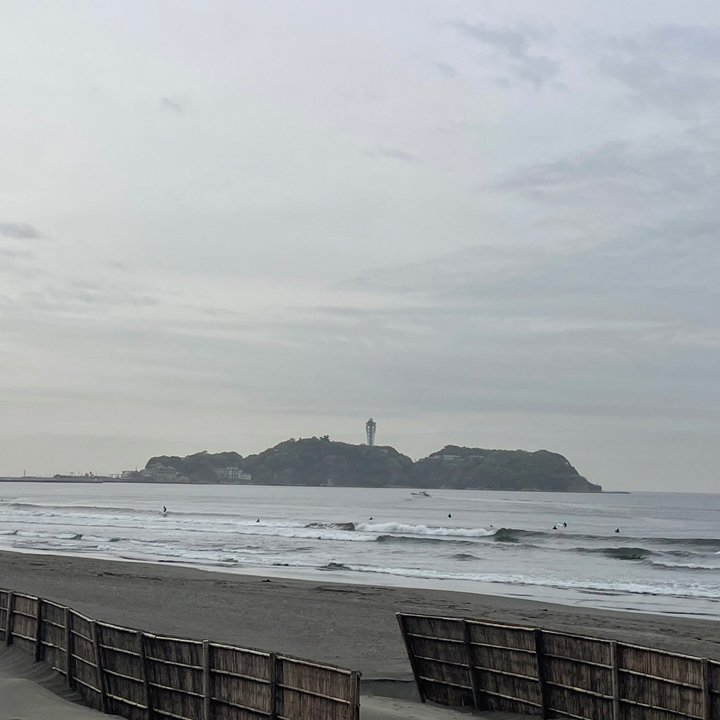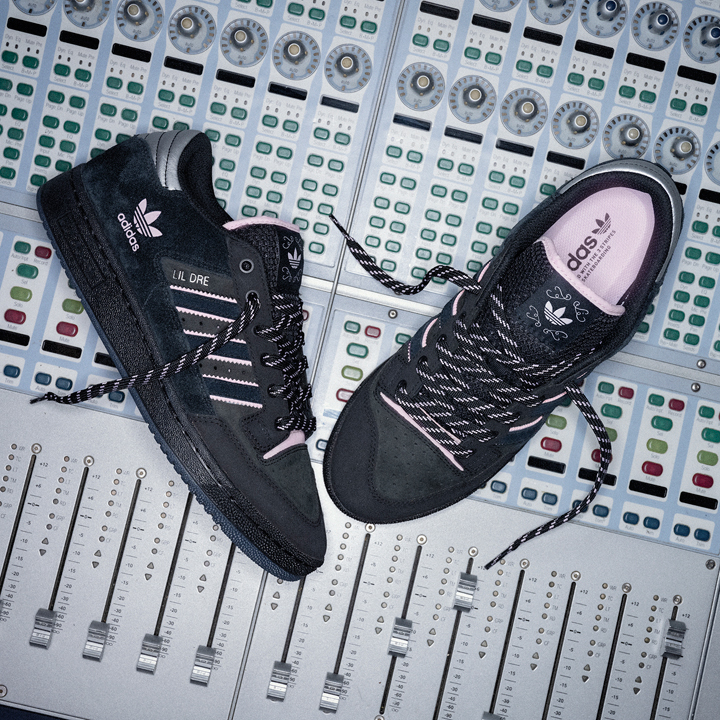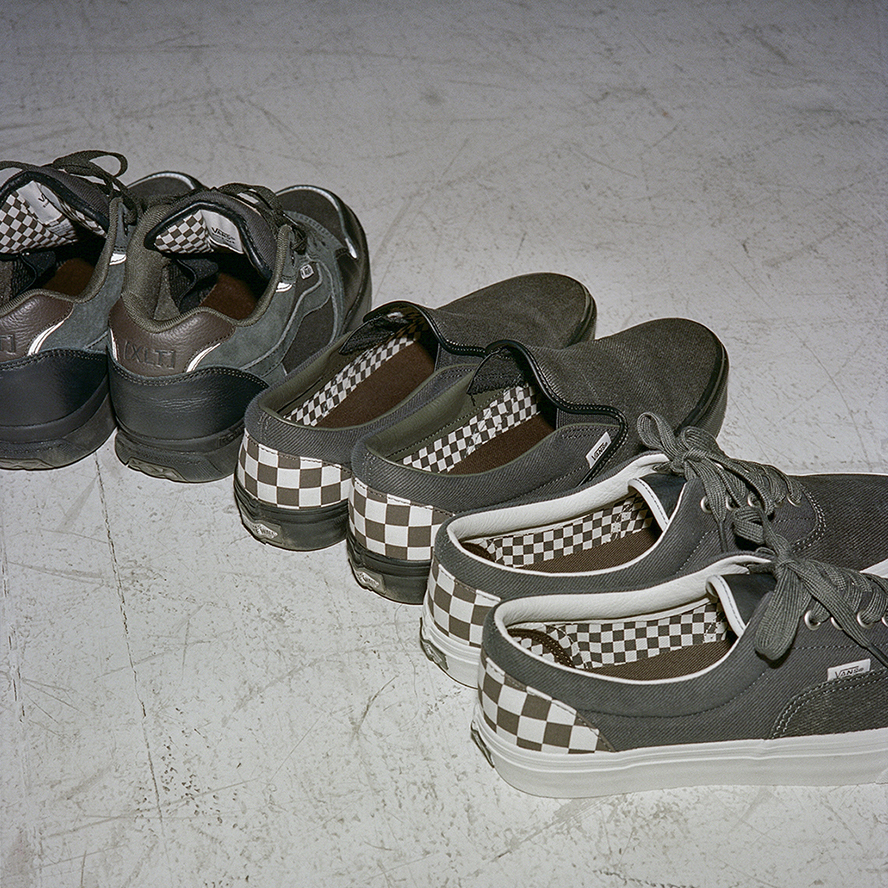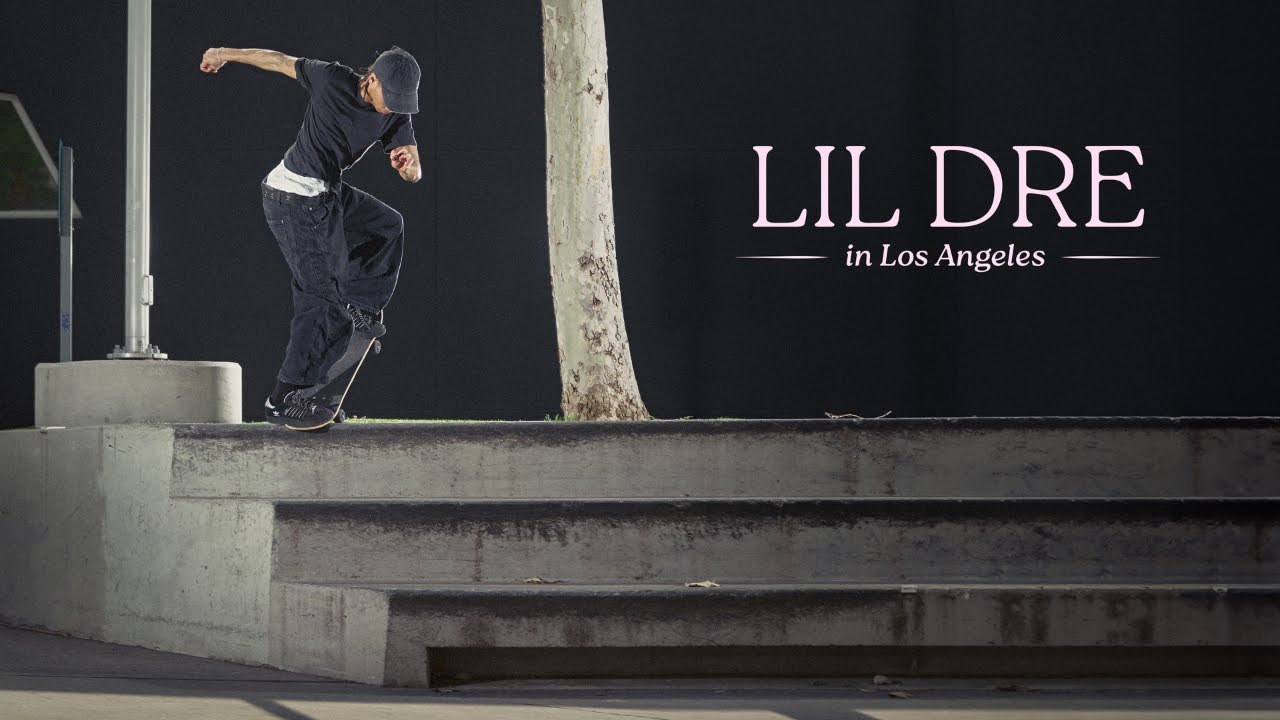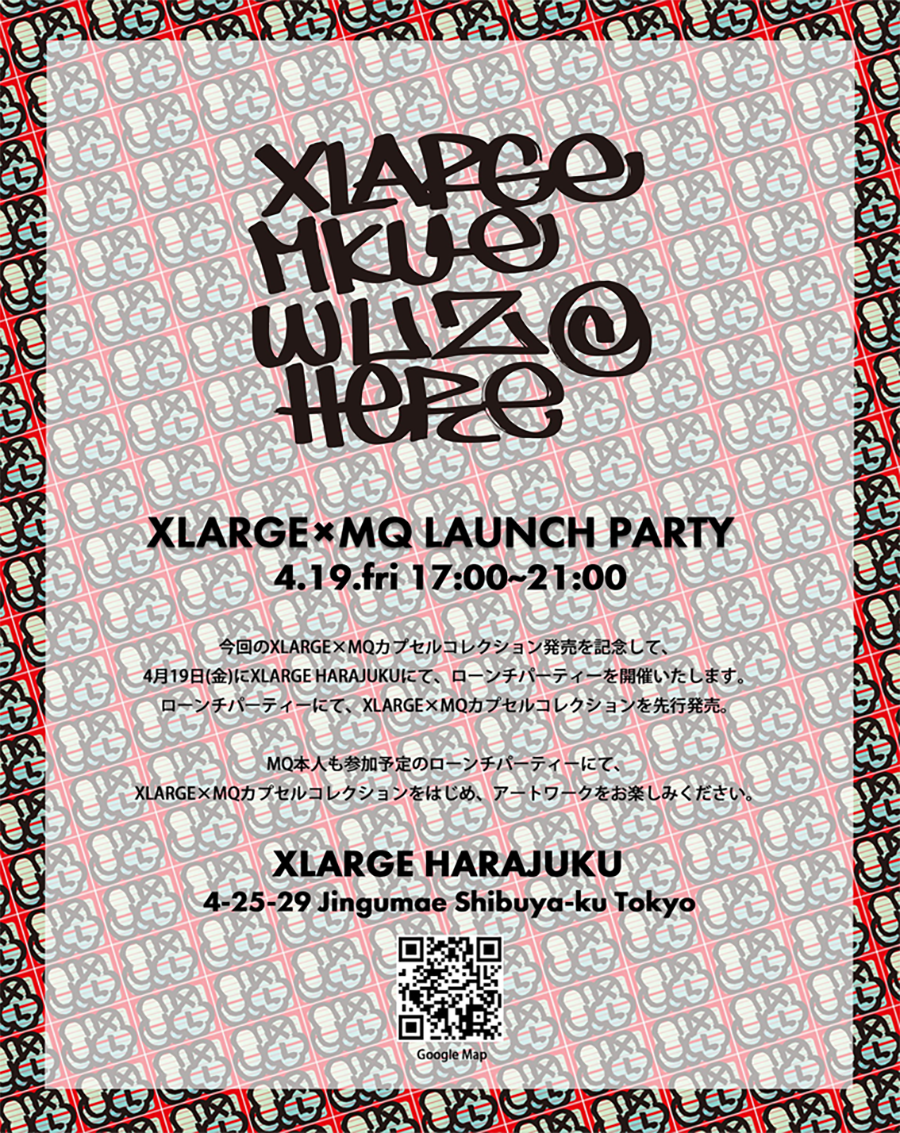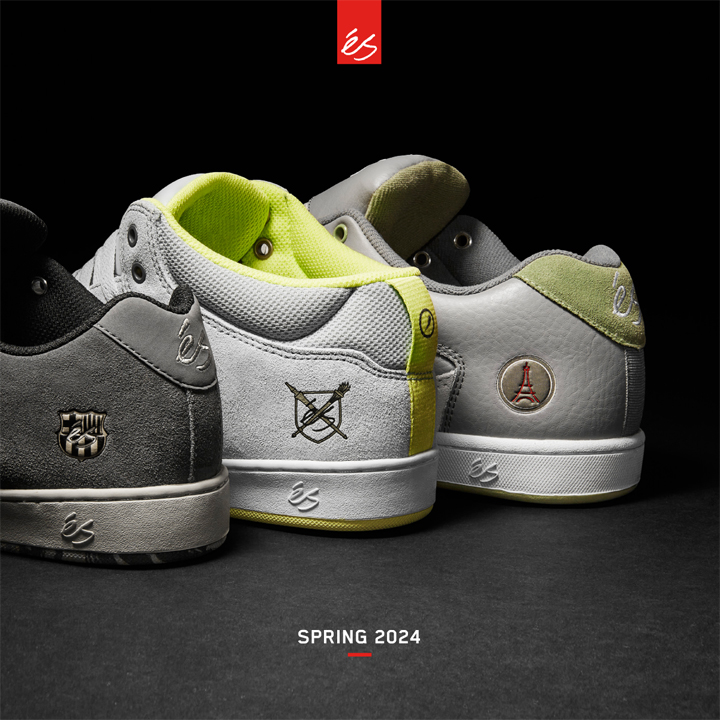Rodney Smith is an OG skater who has been supporting the scene since the dawn of NYC skating. We take a look back at the footsteps of his career, and take a closer look at his newly launched brand ALL ONE.
──RODNEY SMITH (ENGLISH)
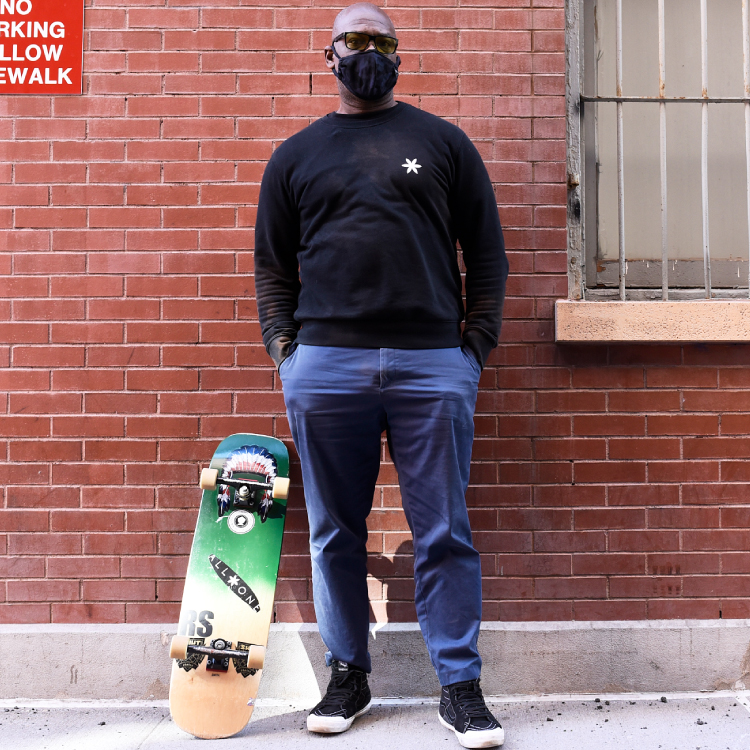
[ JAPANESE / ENGLISH ]
Portrait_Ryan Zimmerman
Archive photos courtesy of Michael Cohen
Special thanks_ALL ONE
VHSMAG (V): When did you get into skating? Late 70s, I believe?
Rodney Smith (R): Yes… it was the 70s, around 1973 to '74. I was about eight years of age. The first skateboard that I had ever seen appeared in a 60’s product / mail order catalog called Sears and Roebuck. As I flipped through the pages I got to the section that had inexpensive solid pine wooden or metal decks, roller skate trucks and steel wheels. This is before plastic skateboards with urethane wheels hit the scene in our area. It looked like something that I wanted to try. I knew a kid that had one, yet... he would never want to use it nor let me try it. In late '74 I was walking through the backyard of my family's home that I grew up in and saw something red in our shed amongst the shovels and lawn mower. Strange enough, it somehow belonged to my brother. Long story short, he said I could have it.
V: You were in New Jersey back then? It was way before Thrasher Magazine or Transworld came out.
R: Yes... I grew up in N.J. and in '74 I was completely clueless to what skateboarding even was. I didn’t know anyone who rode skateboards and I didn’t even know to call it skateboarding. I didn’t know magazines existed from the late 60’s featuring skateboarders in magazines like Skateboarder. I didn’t know that people in California, as well as in the entire U.S., showed a real interest in skateboarding by '74. In '75 there was a new debut release of Skateboarder magazine, that was distributed throughout the world via personal subscription, surf shops, Hobby shops, grocery stores, some toy stores, bike shops and hardware stores.
V: How did you get introduced to the skateboard community?
R: One day while rolling up and down a local small hill, out of nowhere this blond haired older kid shot down the hill past me, power carving so fast that I couldn't believe what I was seeing. I stood there in shock as this split second encounter just happened and took me by surprise. He turned to come back up the hill, mind you he pushed up the hill faster than I could go down it, stopped and said, “Do you like skateboarding?” I respond with a secure “Yeah” and he sarcastically says “Can you ride that thing?” I say “Yeah, I’ll show you.” So I did. He then said his name was David Sadler and I told him my name. He jumped back on his board and rolled away. A year and a half went by and I had only seen him about three times after that miraculous day. Each time I saw him he was stoked to see that I was still skating and gave me props with a smile and fist pumps. It was the next time that I saw him and he said that I looked more relaxed on the board. I assumed he thought I had potential, in which he then asked me if I wanted to learn more about skateboarding and I said “Yup.” If I got permission first from my mom, to then come over to his place two short blocks away, he would show me something worthwhile. I raced over to his house, he invited me in and led me up to his attic. As we walked up the stairs I smelled something that resembled the toxic scent of glue. We proceeded up the stairs and he opened the door. To my amazement the attic was packed with surf boards, skateboards, wet suits, magazines etc... and at that point, I was once again shocked. Dave had everything in that attic that signified what skateboarding and surfing was all about in America. He handed me a current Skateboarder magazine to look through, which I likely didn't blink while flipping the pages. Each page blew me away with something representative of skateboarding of the time. The holy grail was what I was experiencing at that moment. He asked me if I wanted a newer style board, which I accepted. I told him that I had no money and he said, “No problem.” He then said to me, “If you take on a challenge that I have for you and make it, I will give you one of my used boards for free.” I yelled out, “Let's go and I’ll do it now!” He let me pick the board to do it on with a chance of succeeding. I still didn't know what the challenge was at that point, and I was just hyped to have the chance to get that rad set-up. The challenge was to bomb one of the bigger hills in town and make a tight left turn at speed and after two slams I made it. Not only did I get a Sims Pure Juice longboard, I also now had a cool skate mentor and friend.
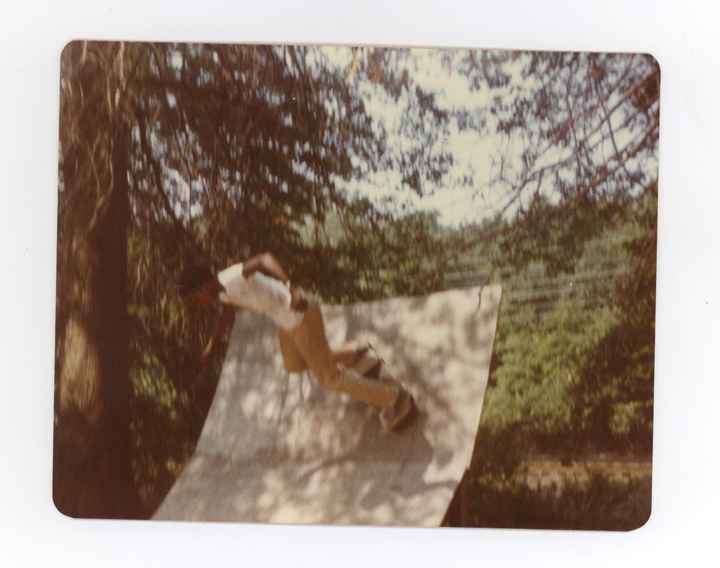
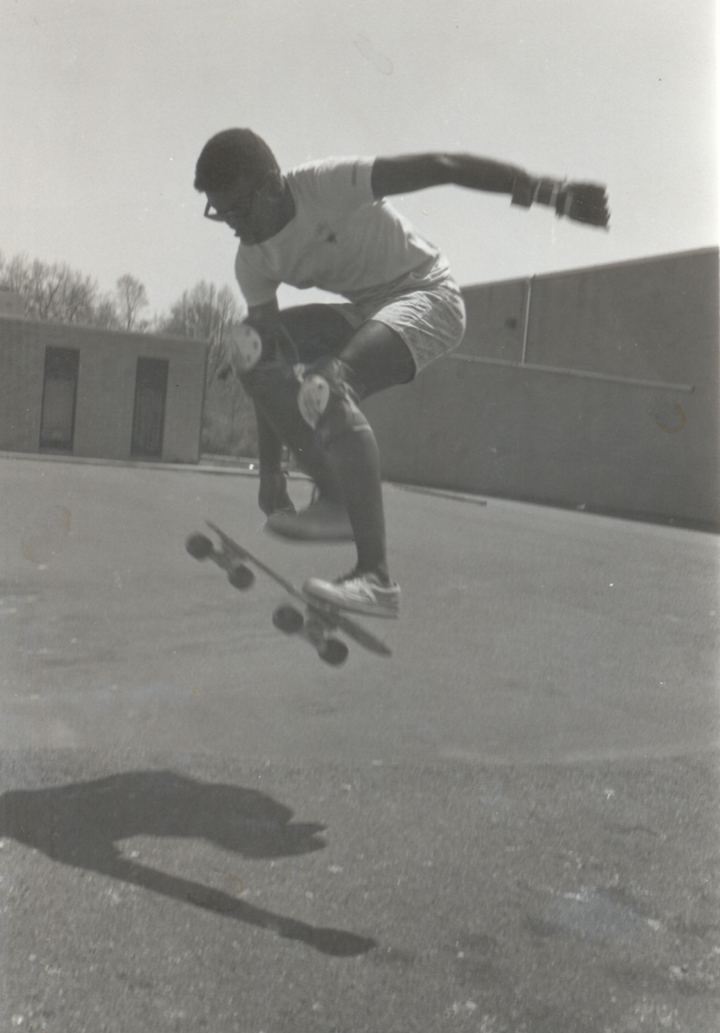
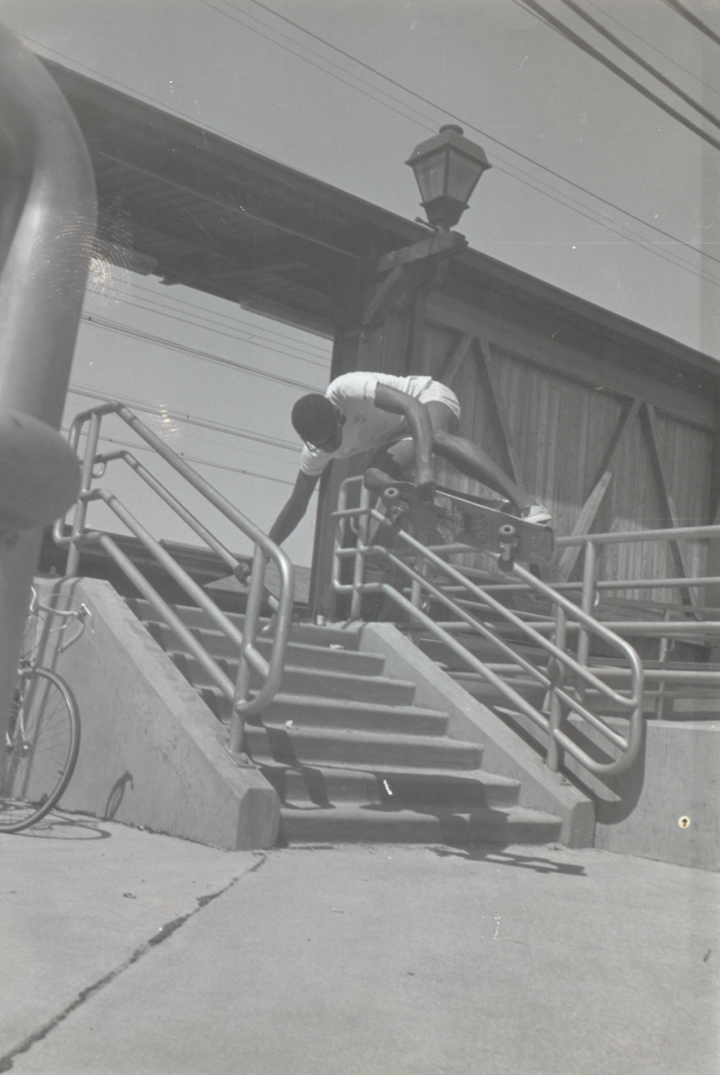
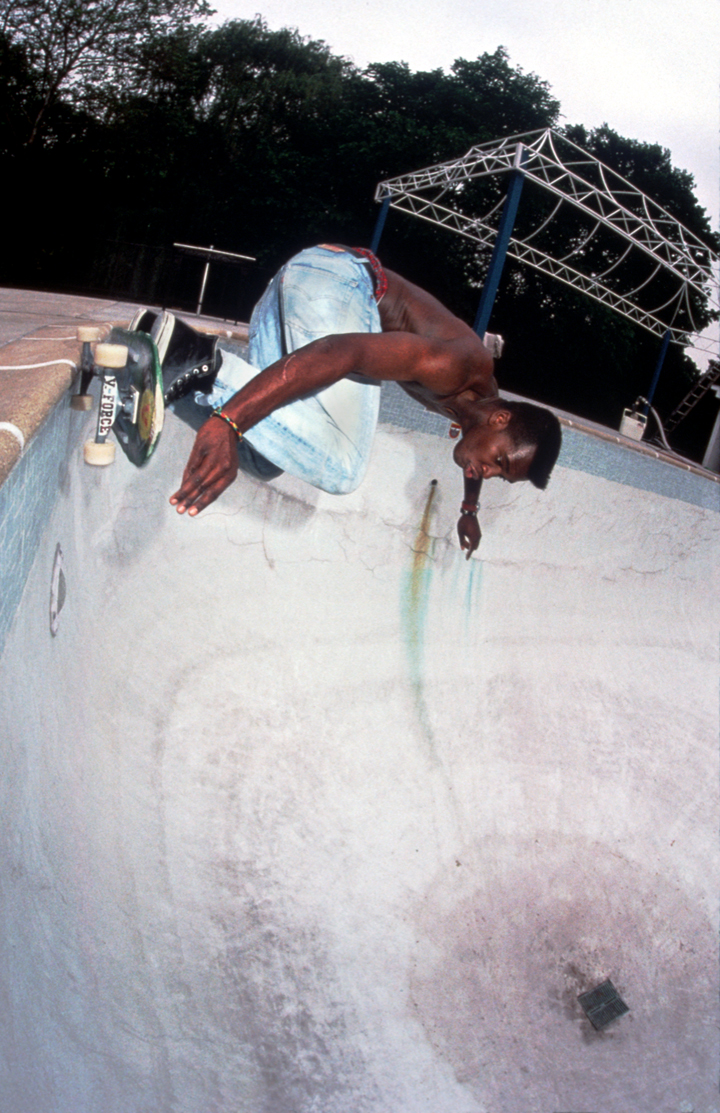
V: You co-founded SHUT in the 80s.
R: It was conceived with a crew of homies with the idea that we could provide ourselves with the means to correct the inherent problem of the industry of the times, poorly made decks. For a few weeks we all loosely converged together with attempts to make our ideas happen. When all was said and done, with the initial stages, it became clear that it all was time to get serious, in order to pull this off literally. It was Bruno Musso and I, with a team of skaters, that led Shut into being an actual company. This venture was truly out of necessity. We represented our sponsorships and companies that made decks for vert skating. They didn't withstand the abuse of progressive street skating of the time, so we made our own. At first we cut down vert decks into more useful street shapes on Aly Owerka Moore’s roof in Bed Stuy Brooklyn. SHUT SKATES is NYC’s first skateboard company, and yet... I cannot speak for the rest of New York state. I'm sure there were likely companies not specifically or exclusively making skateboards that gave it a go in the 70’s from The Empire State, yet most fell to the wayside when the 70’s trend ended. NYC back then was not the most ideal place for starting a skateboard company, yet we pulled it off.
V: You also co-founded Zoo York in ’93. It was named after the graffiti /skate crew from the 70’s, The Soul Artist Of Zoo York.
R: The Soul Artist of Zoo York had two main aspects to it, graffiti and skateboarding. Andy Kessler and Jamie Affoumado were the real skater heads of the crew. In NYC, skateboarding was a subculture to graffiti artists and graffiti was a subculture to die hard skateboarders. Hip-hop culture and DJs also played a part in these subcultures. Most young adults participated in that "what is cool and happening” scene. Kids and some adults scribbled with markers on trains and walls... yet, the true artist who did graffiti produced master pieces. Marc Edmonds aka ALI coined the phrase Soul Artist of Zoo York and he and the others did a lot of independent community service work. Most notable was ALI’s Zoo York zine, which printed up what was happening in NYC, with either political or local relevant information. There was an incident that took place in “the tunnels” when Futura and ALI set out one day to spray up some trains in the tunnels. As Futura tells it ,there was a mishap / accident of sorts and ALI got hurt, when the two of them attempted to avoid being arrested. As they saw the police coming into the dark tunnels, they needed to get out of there quickly or be arrested. These tunnel adventures were always risky and it was always known to be "to each their own" when entering MTA private property to paint trains aka “Bomb the system.” This “each man to himself” applied not only to graffiti heads, but also to skaters hopping fences to skate empty pools ... The story goes like this. Futura made it out and ALI did not. ALI was hospitalized for serious injuries that he sustained, he was treated and he eventually was released. Rumors spread about the incident. Futura left NYC under his own accord for the military. It's Futura and ALI’s story, not mine. A big thanks to the Soul Artist for their trust in us to respect their legacy. It's printed in the tablets, as it has a presence in the Smithsonian. Like it or not, it forever holds a place in the NYC history books. R.I.P. Marc ALI Edmonds and Andy Kessler.
V: Did you have to talk to them about using the name for a skate company?
R: Futura and STASH II had started a new project after the shift from GFS / Not From Concentrate, well known for their Philly Blunts graphic tees, in which STASH II had then started SUBWARE. He needed a new space to post up in for a short while and asked me if he could rent space in our Zoo York Skateboards warehouse, in the meatpacking district of NYC. We agreed. We did speak with Zephyr, HAZE, others and they all agreed if Futura was supporting it. Soul Artist was not a company nor was it a protected title. A record company had trademarks to the name Zoo York for quite a few years after the Soul Artist disbanded. We got the trademark right after the record company's mark ownership went defunct. Our word to the Soul Artist was under the original terms that we presented to them. Keep graffiti ,the Soul Artist legacy and NYC skateboarding alive and well. Futura, is in a way, the number two man with the Soul Artist, so... his and Jamie Affoumado’s blessing meant everything to our venture. There was a pinnacle day at the Zoo York Skateboards warehouse in '93. It was Futura and Ali reconnecting after many years had passed via a phone call. ALI made a call to the warehouse, attempting to figure out who owned Zoo York Skateboards. On that day Futura happened to be at the warehouse and was able to receive that call reconnected with ALI and then explained what Zoo York Skateboards was about. The blessing from ALI was granted to us through Futura via that phone call. The blessing from Andy Kessler was important for the project moving forward only... he was never fully down until about '99 or 2000. Either way, the respects have been paid and made even if Zoo York isn't coming from the heart any longer. The legacy lives on.
V: Let's talk about your new brand ALL ONE, what's the concept?
R: The concept of the new brand ALL ONE is essentially about the state of the world and its people living on it. It in a way is an emulation of what Marc ALI Edmonds was attempting to do, that being in “service to others” for a brighter future. ALL ONE is making attempts to translate a message to ALL people that being CONSCIOUS and AWARE in one's life can bring about a better way of living for self first and while your at it, serving others just by sincere positivity, acute awareness and be consciously connected to all that serves oneself. With this approach comes the task of how to influence people from all walks of life to strive for personal greatness, while wishing well to others at the same time. ALL ONE is a movement that is to be translated through our messages of how we are growing toward living our personal lives out, in a more positive manner. All the while growing together, with all peoples of the planet, toward achieving greatness for each and every person on this planet. I believe everyone's goals should reflect this concept and be approached with wanting more for oneself and for others. Does having a life experience have to be filled with so much negativity and hardship, we don't believe so and are moving forward with the ALL ONE brand to prove otherwise. We're using the example of how we connect with what it's to be free on the skateboard physically and mentally. Reconnecting with what seems to be our birthright, that being a part of all our collective consciousnesses, that is shared with one another in the skateboard community. Everyone is an equal when on the skateboard, for the simple fact that when skating, you can fall on your head, get past the pain and get up to try again. This example is what ALL ONE wants to show the people of the world what is possible of each and every one of us in life. The mission is to use every style of skating available to translate our message to non skaters as well as skaters. We feel freestyle skating is more appealing to those who cannot relate to the extremes of street skating downhill or ramp skating. The influence of the skateboarding culture on the world has made great impacts, I believe, due to the fact that the skater and skateboarding being so difficult to figure out, by those who do not skate says to me, maybe, just maybe ALL ONE can wake people up out of their detrimental spells. To inform people that the world system that we live under needs all of us to keep it working, and to do things differently in order to achieve a greater potential outcome or result is our responsibility. Mentally and physically. Common sense says do the right thing and strive for the best outcome possible. This never changes and yet... never seems to be provided by those who we assign to make the decisions.
V: That's why you have Japanese skater Isamu Yamamoto representing the brand? Who else is on the skate team?
R: Isamu is a great example of a new age type of thinker and fits what we are about nicely. ALL ONE's professional skate team for freestyle is Isamu Yamamoto and Kyle Hamilton. Also we have pro street skaters Luis Tolentino and Pat Hoblin. We also have a team of up and comer street amateurs. Isamu and Kyle both have very tight skating styles, yet... different in artistic creativity that sets them in their own positions of originality. Luis is an amazing all around skater and so is Pat, with his tech terrain creativity and board control. These skaters are representative of the ALL ONE movement not only on the boards but also in their daily life practices. Positivity all the way and service to others from their health conscious minds and responsible awareness to detail. I couldn't imagine anyone better to represent ALL ONE and yet... we're arms open to those who feel they can represent in the same way our current team represents. When people for the most part use their egos to live their lives, with personal belief systems attached to one's ego, you can start to forget about what's really important. One's mental health can struggle with one's personal and overall world reality. Example being, if you eat energetically poor food frequently, you will eventually suffer the consequences of eating nutritionally absent food. As skateboarders, keeping one's body in good health keeps you skateboarding as well as other things for many years. For years I’d tell skaters that they should stretch before and after skating. I remember hearing about some skaters taking yoga classes and or doing it at home. It wasn't ever cool to tell someone that you practice yoga or that you stretch.
V: I’ve seen Salba doing yoga before skating a pool.
R: I perceive Steve Alba to be a very independent minded human and would not care if skaters had anything to say about his doing yoga stretches. I’m sure he does it to stay in good health and to keep ripping up any pool as a 50 something year old. Jamie Affoumado and Salba are old friends. Jamie aka Puppet Head eats well and stays in good health mentally and physically everyday. Keeping the skateboarding culture healthy is another way to keep all involved or influenced by the freedom that skateboarding delivers. Skateboarding or anything else in life shouldn't be summed up by limits, especially if personal freedom is connected to whatever you respectively do on this planet. Skateboarding should not be limited to an event or based on the amount of money or fame one can receive. It should only be categorized by how far one's consciousness is expanded within oneself through skateboarding, as a human on the planet and out into the universe. We all are a part of an infinite picture universally... We’ve got to think bigger. It's for our long term survival as to how we do things now and however we can derive it, we need to go for it. The choice is yours.
V: I see.
R: I'm a big believer the reason why all of us humans are here on this planet is to at the least help one another. We all and I especially need proper and sincere guidance. We can't live separated on this planet at this time more than ever. My mentors gave me a lot to work with and to ponder on. Some told me that I am here to be responsible with telling the truths of the skateboard culture from my perspective, to skaters and non skaters alike. We alone can't do all that is needed to survive on our own, and I can almost guarantee you that nobody has done anything of significance on their own. This fact is proof of the true reality we live. Do as much good as you can and that can be the best you have to offer... with no judgement. We only have one planet and look at what we have done to it. Talks should be going on and heard by all daily about the ozone layer. Nobody is talking about the nuclear disasters that we’ve created, Chernoble or Fukushima causing severe destruction, displacement, and death to the planet, plants, animals and people without any care about the outcome. The remembrance of Hiroshima and Nagasaki come around each year and really only Japan pays homage to the loss of innocent souls, furthered annihilation of the environment and senseless destruction of the planet at the expense of whom. This is happening daily, world wide in an array of different ways, and it must stop. Just another example of how ALL ONE wants to show positive support to those opposing senseless atrocities.
Rodney Smith
@all_one_rodney_smith
Born in New Jersey. He's the co-founder of SHUT and Zoo York, who has been vitalizing the NYC skate scene since the '80s. He's currently running ALL ONE, a brand with a grand concept.

